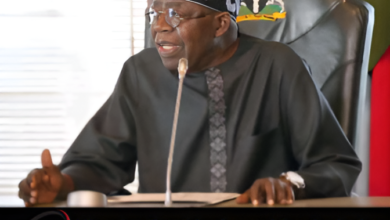Nigeria’s External Debt Expected to Surge to $45 Billion Before January

As the Federal Government moves forward with plans to obtain more external funding, Nigeria’s external debt might reach $45.1 billion by the end of 2024.
Advertisements
The nation’s foreign debt stock grew by $780 million in the second quarter of 2024, from $42.12 billion in March to $42.9 billion as of June 2024, according to the Debt Management Office’s most recent report.

A $2.2 billion external borrowing plan was approved by the Federal Executive Council last Thursday as part of the Federal Government’s 2024 Appropriations Act financing scheme, which is a new development.
At a briefing with State House media following the FEC meeting at the Aso Rock Villa in Abuja, Minister of Finance Wale Edun made the announcement.
Edun claims that a mix of Eurobond and Sukuk issues, with respective values of $1.7 billion and $500 million, were part of the borrowing plan.
In the midst of ongoing economic changes, the monies were anticipated to support Nigeria’s budgetary stability.
Edun stated that, subject to National Assembly approval, the ultimate distribution among the financial instruments would be decided by market conditions and transaction adviser recommendations.
“The first (memo) was to complete the borrowing programme of the FG in terms of the external borrowing with the approval of the $2.2bn financing programme made up of access to the international capital market for some combination of the Euro bond offer and the Sukuk bond offer.
“A Euro bond of about $1.7bn and Sukuk financing of another $500m the actual makeup of the financing which will be done as soon as the National Assembly has considered and seen fate to hopefully approve of the borrowing plan and the external borrowing approval is given, it will be done this year, as soon as possible after approval.
“The actual combination of instruments that will be raised will depend on what the advisors, the transaction advisors, the commercial advisers, and what they say about market conditions at the time we decide and we want to enter the market,” Edun explained.
According to the DMO’s assessment, naira devaluation caused a significant increase in the value of Nigeria’s external debt between March 31, 2024, and June 30, 2024.
Using an exchange rate of N1,330.26/$1, the entire external debt was valued at $42.12 billion on March 31, 2024, or N56.02 trillion.
The external debt increased slightly to $42.90 billion by June 30, 2024, but because of a higher exchange rate of N1,470.19/$1, it soared to N63.07 trillion in naira.
Due mostly to the depreciation of the naira, this indicates a 12.59 percent increase in the naira valuation of external debt throughout the period.
The substantial devaluation increased the burden of external debt in local currency terms, despite the dollar-denominated debt only increasing by 1.87 percent. This highlights the crucial role that the exchange rate plays in ensuring Nigeria’s debt sustainability.
Edun defended the borrowing by stating that the external finance program was in line with the administration’s larger economic recovery strategy, which aimed to stabilise macroeconomic conditions, modify market prices for petroleum and foreign exchange, and encourage domestic production.
He continued by saying that earlier in the year, Nigeria’s successful domestic issuance of dollar bonds demonstrated the financial market’s increasing sophistication and resilience, drawing in both domestic and foreign investors who expressed faith in the Federal Government’s economic reform agenda.









